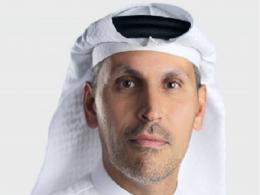High above Stockholm’s skyline, Sweden’s EQT Partners is plotting the next chapter in its rapid rise from a Nordic-focused investor to the world’s seventh-biggest buyout firm, with a focus on growth in the Asia Pacific region.
With 40 billion euros ($45 billion) under management, EQT has quietly transformed itself since its launch in 1994 from an investment arm for Sweden’s influential Wallenberg family into Europe’s second-largest private equity (PE) fund behind Britain’s CVC.
EQT raised a record 9 billion euros in March for its fourth infrastructure fund and in May paid $8.2 billion for U.S. fiber network firm Zayo (ZAYO.N) and $10 billion for Nestle’s (NESN.S) skincare unit, its largest deal to date.
While much of EQT’s growth outside of the Nordics has come from buying and selling companies in Germany and Switzerland, its management is now turning east for expansion.
“Asia offers a great opportunity for growth and we intend to increase our presence there,” Chief Executive Christian Sinding told Reuters at EQT’s new headquarters.
The 46-year old Norwegian, dressed in shirt and jeans rather than formal business attire, stressed that the fund wanted to grow in areas where it was still small rather than expanding in new asset classes.
Sinding said EQT may pursue an initial public offering (IPO) as part of a strategic review which was announced last year. A decision on whether to proceed would be made after the summer.
“In order to future-proof EQT and continue our growth, we are considering taking this a step further by building EQT’s own balance sheet,” Sinding told Reuters.
And while economic uncertainty means tougher times might lie ahead, Sinding - who has worked at EQT for 21 years and has led its equity investment advisory team since 2011 - sees bigger deals and larger funds as a natural evolution.
“We think a lot about the recession. EQT pays high multiples for assets, but we’re okay with that because it’s about buying really good companies and making them better,” he added.
Sources familiar with the Nestle deal said EQT paid close to 20 times EBITDA due to fierce competition from other investors. A report by Bain & Co says the average multiple for European and U.S. buyout deals is around 11 times across all sectors.
Asia Pacific represents around 16% of EQT’s portfolio and former CEO Thomas von Koch, now its deputy managing partner, is set to move to Hong Kong to back the growth strategy for the region, which includes setting up an office in Australia.
The Nordic region dominates EQT’s holdings with 33% of its invested capital at the end of 2018, with the rest of Europe accounting for 25%, the Americas 20% and the rest of the world the remainder.
Sinding also wants to invest in disruptive but not yet profitable start-ups in Europe, in a quest to find the next Spotify (SPOT.N) or Klarna, as well as in profitable private firms in need of capital such as Banking Circle.
“We have a ventures fund and great buy-out funds but there is an interesting pocket in between,” he said.
'Most Reputable'
While U.S. giants Blackstone (BX.N), KKR and Carlyle (CG.O) have gone public and become self-styled alternative asset managers, only a handful of PE funds are listed in Europe.
Sinding ruled out any interest in diversifying EQT away from its core business of companies, infrastructure and credit.
“We stick to investments that can add real value. Our aim is not to be the biggest private equity fund but rather the most reputable,” he said.
Unlike its biggest American and European competitors, EQT has flat organizational and fee structures, both staples of Nordic consensus-building business models, as well as an industrial approach where target firms are chosen because of their business model.
Pressure to change EQT’s set-up and become a publicly-traded company is partly driven by Investor AB (INVEb.ST), the Wallenberg investment vehicle, looking to cut its exposure to EQT, bankers close to the IPO have said.
Investor AB, which has 21.5 billion Swedish crowns invested in EQT through a 23% stake in EQT AB and investments in most of its funds, has annually made a 30% return and cash flows of 1 billion crowns-1.5 billion from the investments over 25 years.
Sources said a dual listing in Stockholm and Zurich, which is home to EQT’s second headquarters, is a possibility as the firm seeks to model itself after Zurich-listed Partners Group (PGHN.S), which trades at 23.8 times earnings and has outperformed U.S. rivals in the last five years.
“It is the only IPO in Sweden for which local investors are getting out of bed,” a Stockholm-based banker said.







